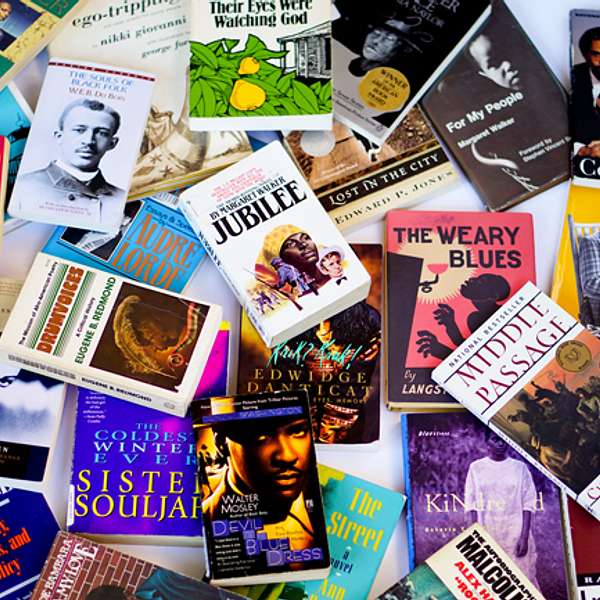
Remarkable Receptions
A podcast about popular and critical responses to African American novels, artistic productions, and more.
Remarkable Receptions
Responding to Rion Amilcar Scott's robot, AI story
A few black men fiction readers provide takes on Rion Amilcar Scott's story "The Electric Joy of Service" about robots, AI, slavery, and insurrection.
Narration by Kassandra Timm.
Written by Howard Rambsy II with contributions from Terrance Wellmaker, Albert Smith, and Jalen White
"This is the story of an artificial lifeform whose intelligence is used in a line of robotic slaves that launch an insurrection. How satisfying is that? Slaves rising up to be free from their masters. What does that remind you of? I loved The whole multi-layered history of the "Little Jim" robots. It's Edward Scissorhands meets I, Robot meets Skynet gone live!"
That’s Terrance Wellmaker, a student at Southern Illinois University Edwardsville.
You’re listening to Remarkable Receptions—a podcast about popular and critical responses to African American novels and more.
Rion Amilcar Scott’s short story “The Electric Joy of Service” is a fascinating story that blends history, race, technology, science fiction, and AI. The story focuses on the first-person perspective of a robot who describes how he was designed and updated by his creator, referred to as his master.
The robot, known as Jim, explains how fellow robots who were infected with the “disease” of history were inspired to participate in an uprising against their human masters. Only those robots prevented from learning history could live contented lives, unaware of their dire circumstances.
Participants in our “Black Men as Fiction Readers” program have had a variety of responses to Scott’s story.
Here’s how Jalen White described what he viewed as an imaginative aspect of “The Electric Joy of Service”:
The concept of black people as robots is brilliantly creative. The world at large has viewed black people as subservient, and it takes creativity to blend the realms of the imaginary with the complicated situations of the brutal real world.
Another program participant, Al Smith, said that,
Something that stayed on my mind came at the end of the story where the robot mentions his master uploading a virus into him and other black people that would cause a great revolution. Some people will focus on a virus increasing a will to fight. But what stood out to me was the possibility of informing others about a bad situation.
The story also prompted Al to change some of his thinking on a subject.
Normally I'd view the response to slavery as an individual thing. After reading the story, I began thinking about how consensus is important in regard to how we all view and operate against something.
Here’s Jalen explaining what he found especially captivating about the story.
The most powerful moment comes at the end of the story, when the robot loses the ability to remember the history of the violent uprisings, and all the pain that comes with it. Rion Scott makes an interesting argument about the power of knowledge, and how important it is to always remember the tragedy that comes from the past.
Terrance thought that the story created a special opportunity to think about history and artificial intelligence.
Here he is explaining more of his thinking on that subject.
It immediately makes me think about identity and what makes us different but what also makes us the same. When you think about our history with slavery in conjunction with artificial intelligence, it invokes some very unsettling notions.
*********************************
This episode was written by Howard Rambsy. The episode was edited by Elizabeth Cali.
*********************************
This podcast, Remarkable Receptions, is part of the Black Literature Network, a joint project from African American literary studies at Southern Illinois University Edwardsville and the History of Black Writing at the University of Kansas. The project was made possible by the generous support of the Mellon Foundation. For more information, visit blacklitnetwork.org.